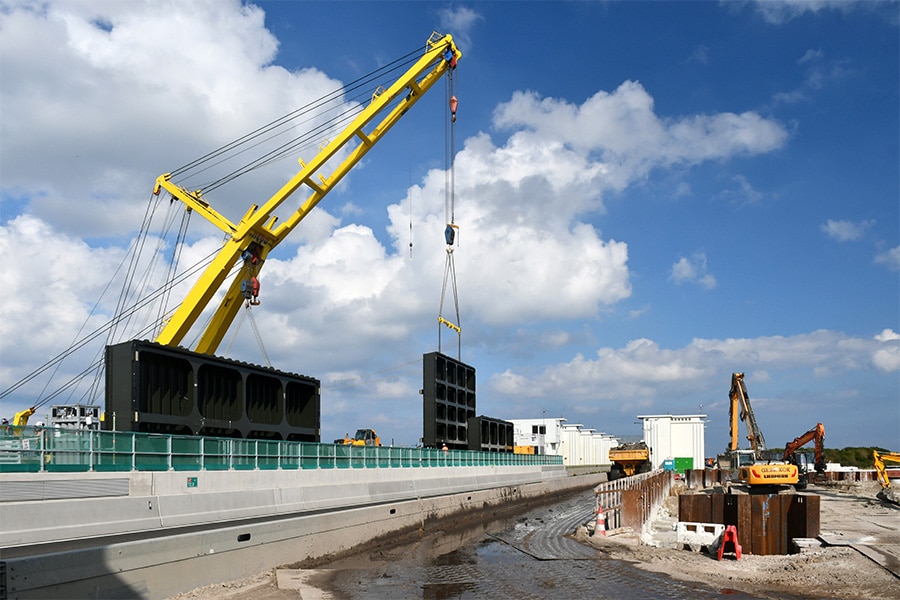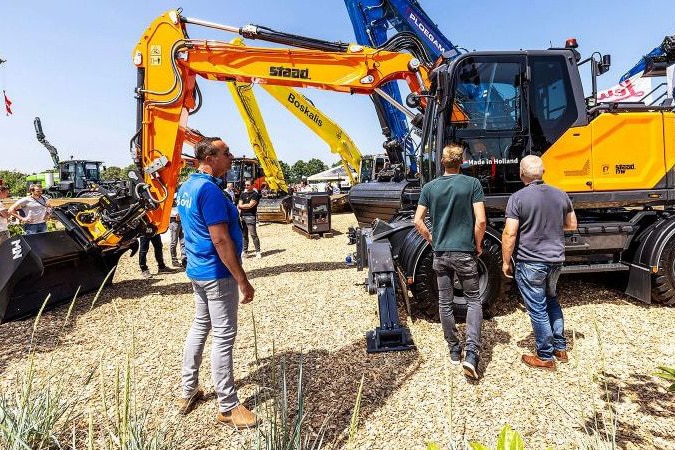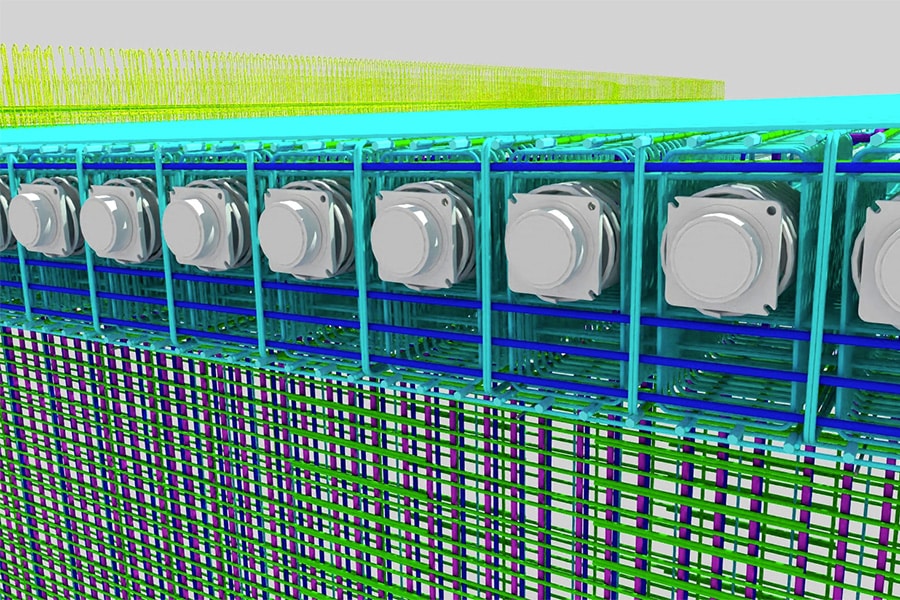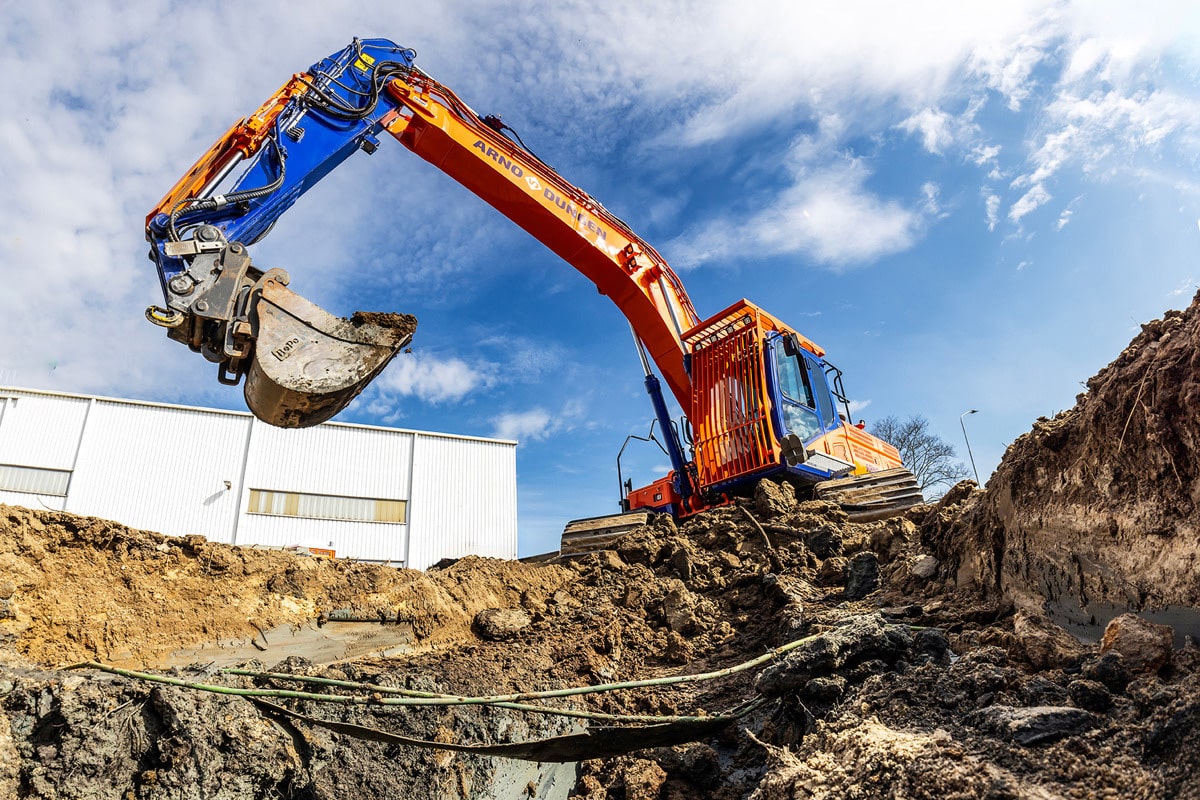
'Hybrid way of working' keeps social aspect of collaboration alive
At the time of this writing, the Netherlands is preparing for a second Corona wave. The measures that were in place at the beginning of the Corona crisis and were later relaxed seem to be tightening again. 'Social Distancing' and working from home are back in full force, working Holland now knows 'the drill'. We talk to Andrea Vollebregt, director of the Association of Hydraulic Engineers, about Corona's continuing influence on the sector.
"The great thing about hydraulic engineering is that you work outside a lot during construction," Andrea opens the conversation. "We've been able to keep working pretty well so far, with the necessary adjustments." By this she is referring to driving to work individually and not sitting all together in a construction shack, for example. "Only in the cab of a crane do you have full private quarantine."
A ship is a sailing quarantine area
Andrea respects the large group of crew members on ships, many of whom have been detained abroad by Corona. "Some are still there," she outlines. "Because of the Corona crisis, you can't just relieve a crew. Some crews have been on the ship for months, a very small world. But they are go-getters who make the best of it together even in a crisis situation. I am proud of that. A ship is actually a sailing quarantine area. One does not go ashore, at most briefly at the quay. People from outside were denied access to the ship for security reasons. This meant that the issuing of certificates, for example, was postponed. Supplies did, of course, continue as usual."
New opportunities to continue working
The entire BV Nederland has now made the move to digital communication. Also in hydraulic engineering, is Andrea's observation. "We quickly learned that we can do more on the digital front than we thought. Our members are all over the country and the positive aspect of digital cooperation is that there is less need to travel. That saves costs and time. We have fully embraced it, doing the central meetings digitally. The general membership meeting took place digitally and we also started holding webinars. Really something to keep in there after Corona."
However, Andrea does not want to underestimate the social aspect of being physically present at a meeting. "Video is nice, but you miss a piece of body language, sociability and atmosphere. After all, our work is also connecting people. So we don't say goodbye to that either, we just use it more selectively. For example, we consider whether it is really necessary to meet in real life. If that is the case, then we carefully select a location where we can meet in compliance with the RIVM guidelines. So we go for the combination digital-physical working, a hybrid working method, with the RIVM guidelines as a compass. This applies not only to our association, but also to meetings with clients. Sometimes it is difficult, but we haven't heard an unkind word about it. Everyone takes responsibility."
"We can work, so let us work."
In conclusion, we talk about the order book, now and in the future. A source of concern for Andrea. "Now we continue to work on orders that were already there, in modified form. But how do we keep that order flow going? The order book needs to be filled and projects in the pipeline need to get to market faster. We can work, so let's work. My fear of declining orders is not just declining sales, but that the pressure will cause people to leave the industry. Then you get a "brain drain," and just try to get that knowledge back.



